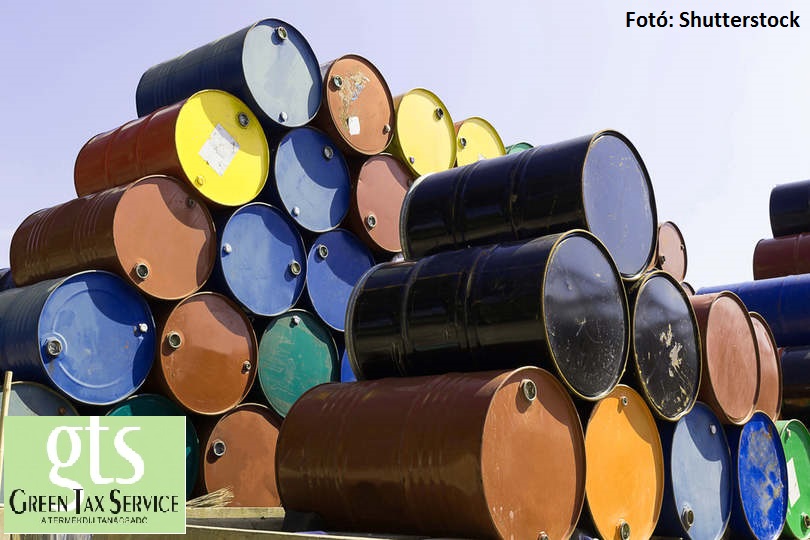Az egyéb kőolajtermékkel kapcsolatosan
életbe lépett változások 2021. január 1-étől
A jogalkotó némileg meglepte a piaci
szereplőket a 2021. január elsejétől életbe lépő végrehajtási rendeletben
foglaltakkal, ugyanis az egyéb kőolajtermék anyagáramot három kategóriába kell
sorolni, viszont a díjtétel továbbra is 114 Ft/kg. Sajnos arra vonatkozóan nem
tartalmaz a rendelkezés előírást, hogy az adott csoportokba pontosan milyen
fizikai, kémiai tulajdonságokkal rendelkező olajokat kell sorolni. Ennek
meghatározásában kívánunk Laczi
Ferenccel, az ország egyik legelismertebb jövedéki szakértőjének
bevonásával segítséget nyújtani kedves olvasóinknak.
A
három kategória a következő:
I. csoport: Motor- és
sebességváltó-olajok
II. csoport: Ipari olajok
(az emulziók kivételével)
III. csoport: Ipari olajok (emulziók)
Jelen szakmai összefoglaló anyagunk
rendező elveket fogalmaz meg, melyek irányadónak tekinthetőek csupán, viszont
minden konkrét terméknél a következő „egyszerűbb” kérdéseket kell mindenek
előtt megvizsgálnunk:
·
mi ez az anyag?
·
milyen területen?
·
milyen célra?
Erre a három kérdésre adott válasz fogja
főként eldönteni, hogy melyik csoportokba tudjuk sorolni a termékeket.
I.
Motor- és sebességváltó-olajok
– E csoportba tartozónak olyan olajokat kell tekinteni, amelyeket:
a) belsőégésű motorokban használnak a motor belső, forgó, mozgó
alkatrészei között kialakuló súrlódás csökkentésére. Ezek
lehetnek olajszivattyú segítségével a motoron belül keringtetett olajok (ezt
szokták a gépkocsi olajcsere szerviz során leengedni, kicserélni), amelyek a
kenésen túl szerepet vállalnak a motor hűtésében is, ezért
intenzív hőterhelésnek is ki vannak téve. Ez az oka, hogy a jármű, vagy gép
gyártója által meghatározott szervizciklusonként az olajat le kell cserélni,
mert a hő- és mechanikus termelés hatására csökkennek az olaj azon a
képességei, ami miatt használjuk. De nem szabad elfelejteni, hogy léteznek még kétütemű
motorok is, ahol a kenés előbb említett formája műszakilag nem
oldható meg, de a kenésről ekkor is kell gondoskodni, s erre azt találták
ki anno, hogy a kenőolajat hozzákeverik a benzinhez, tehát a kenőolaj az
üzemanyaggal együtt kerül be a motor belsejébe, a hol nagy része lecsapódik a
belső fémfelületekre, a többi pedig elég a benzinnel együtt. Ezért füstölnek
jobban a kétütemű motorok. De attól, hogy elég, még nem lesz üzemanyag adalék.
Vagyis ezek az ún. motorolajok a belsőégésű motorok kenését biztosító
olajféleségek, amiket tehát vagy bele kell önteni a motorba, vagy hozzá kell
keverni a benzinhez, s ez lesz az ún. keverék üzemanyag.
b) A kenőolajok másik nagy csoportja, amelyeket a motorokhoz
kapcsolt erőátviteli rendszerekbe kell beleönteni azért, hogy az
áttételi rendszerben csökkentsék a súrlódást,
csendesebb üzemet biztosítson és nem utolsó sorban csökkentse a súrlódásból
fakadó hőt. Röviden, megsokszorozza a rendszer élettartamát. Ezeket az olajokat
is – a motorolajokhoz hasonlóan – bele kell önteni a hajtóművek (nyomatékváltó,
vagy, ahogy a köznyelv ismeri sebességváltó, továbbá tengelykapcsoló, a
köznyelvben kuplung szerkezetbe, mert vannak olajos kuplung szerkezetek is)
házába.
II.
Ipari olajok:
E csoportba tartozónak olyan olajokat kell
tekinteni, amelyeket valamilyen ipari területen használnak, esetleg pont egy
adott tevékenységre van kifejlesztve. Például ilyen lehet egy hengermű olaj – például
az alumíniumhengerléshez használtat – ahol a hengerlésre váró, illetve
hengerelt anyagot a hengerek előtt és után bepermeteznek egy speciális olajjal,
egyrészt a súrlódás csökkentése, másodrészt a hengerlés okozta fém-rácsszerkezet
átalakulás során fellépő hő csökkentése érdekében. Arról már nem is szólva – s
ez vonatkozik a motor- és váltóolajokra is – hogy a működés során leváló
fémszemcséket eltávolítsák a felületekről, nehogy kárt okozzon a felületben
vagy felületek között. Több fajta ilyen speciális olaj is létezik, amire sok
esetben már az elnevezés is utal, pl. formaleválasztó olaj a
fémöntési munkáknál, aztán a villamos szigetelő olaj, orsóolaj,
vagy a hidraulika rendszerekben használt hidraulika olajok, stb. A
hidraulika olaj az mindenképpen ipari olajnak tekintendő ugyanis alkalmazásának
célja, területe egyáltalán nem felel meg az első csoportba tartozó motor- és
váltóolajoknak. Nagyon lényeges, hogy ezek a termékek akkor tartoznak ebbe a
csoportba, ha nem készítenek
belőlük emulziót.
III.
csoport: Ipari olajok (emulziók):
Az
emulzió nem más, mint egyes olajoknak valamilyen vizes bázisú anyaggal, vagy
akár vízzel való keverésével keletkező anyag.
Ezen logika mentén vannak az említett
három csoportba sorolva a termékek a megítélésünk szerint. A megfelelő
csoportba soroláshoz konkrétan ismerni kell a terméket és annak felhasználási
célját, területét, arra a kérdésre keressük a választ, hogy mire való a termék.
Ebben sok esetben nem segít a termék műbizonylata, biztonsági adatlapja,
leírása, kizárólag a gyártó, behozó fogja tudni a megfelelő csoportba sorolni a
saját termékét.
Bízunk benne, hogy ezzel a szakmai tájékoztatóval
segítséget tudtunk nyújtani a három csoport közti összefüggéseket átlátni,
illetve megérteni az elhatárolás szempontjait. További kérdésük esetén a Green
Tax Service Kft. rendelkezésre áll a termékdíjjal kapcsolatos kérdésekben,
illetve jövedéki kérdésekben forduljanak bizalommal Laczi Ferenc Igazságügyi
jövedéki szakértőhöz, aki iránymutatást adott a mostani kérdés megértéséhez.
Elérhetőségéért vegyék fel a kapcsolatot irodánkkal.
Nyilatkozat
A GREEN TAX SERVICE Kft. kijelenti, hogy
a tájékoztató összeállítását a termékdíjra vonatkozó jogszabályok szerinti
előírásoknak megfelelően teljesítette. A mindenkor elvárható gondossággal és
körültekintéssel, a szakmai standardok betartása szerint járt el.
Jelen összefoglaló nem tartalmazza a
teljes termékdíj törvény és annak végrehajtási rendeletében előírt szabályozást.
Célja nem a teljes körűség és a jogi normák hivatkozásainak pontos idézése,
hanem gyakorlati iránymutatást tartalmaz, melynek elsődleges célja, hogy az
összefoglaló közérthető legyen.
A GREEN TAX SERVICE Kft. tájékoztatja
az olvasót, hogy a jelen összefoglalóban leírt megállapítások, vélemények, javaslatok
jogalkalmazói értelmezését, gyakorlatát és szakmai véleményét tükrözi, melyek
szakmai véleménynek, ajánlásnak, iránymutatásnak minősülnek, de jogi kötőerővel
a jelen összefoglalóban foglaltak nem rendelkeznek. A GREEN TAX SERVICE Kft. az
esetleges hibákért, hiányosságokért a felelősségét kizárja.
A GREEN TAX SERVICE Kft. nem
rendelkezik hatáskörrel a jogszabályok értelmezésére, a jelen összefoglalóban
foglaltak szakmai véleménynek minősülnek, melyek egy esetleges jogvitában a
bíróságokat, hatóságokat nem köti.












